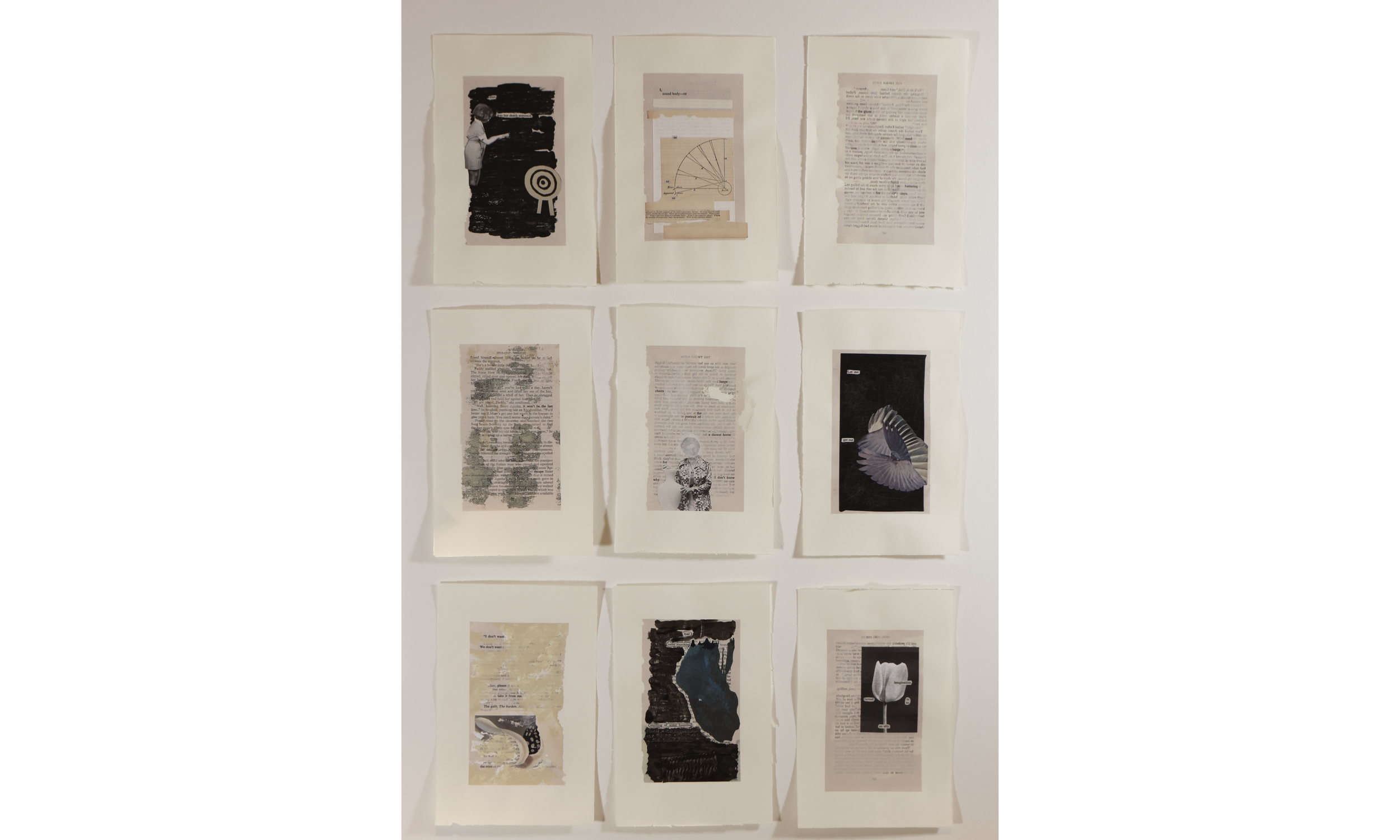Poltergeist Library
This solo show at the Alane E. Scher Gallery at Yale University in November 2022 featured five collections of work circling themes of revising ghosts, erasing text, and revisiting books.
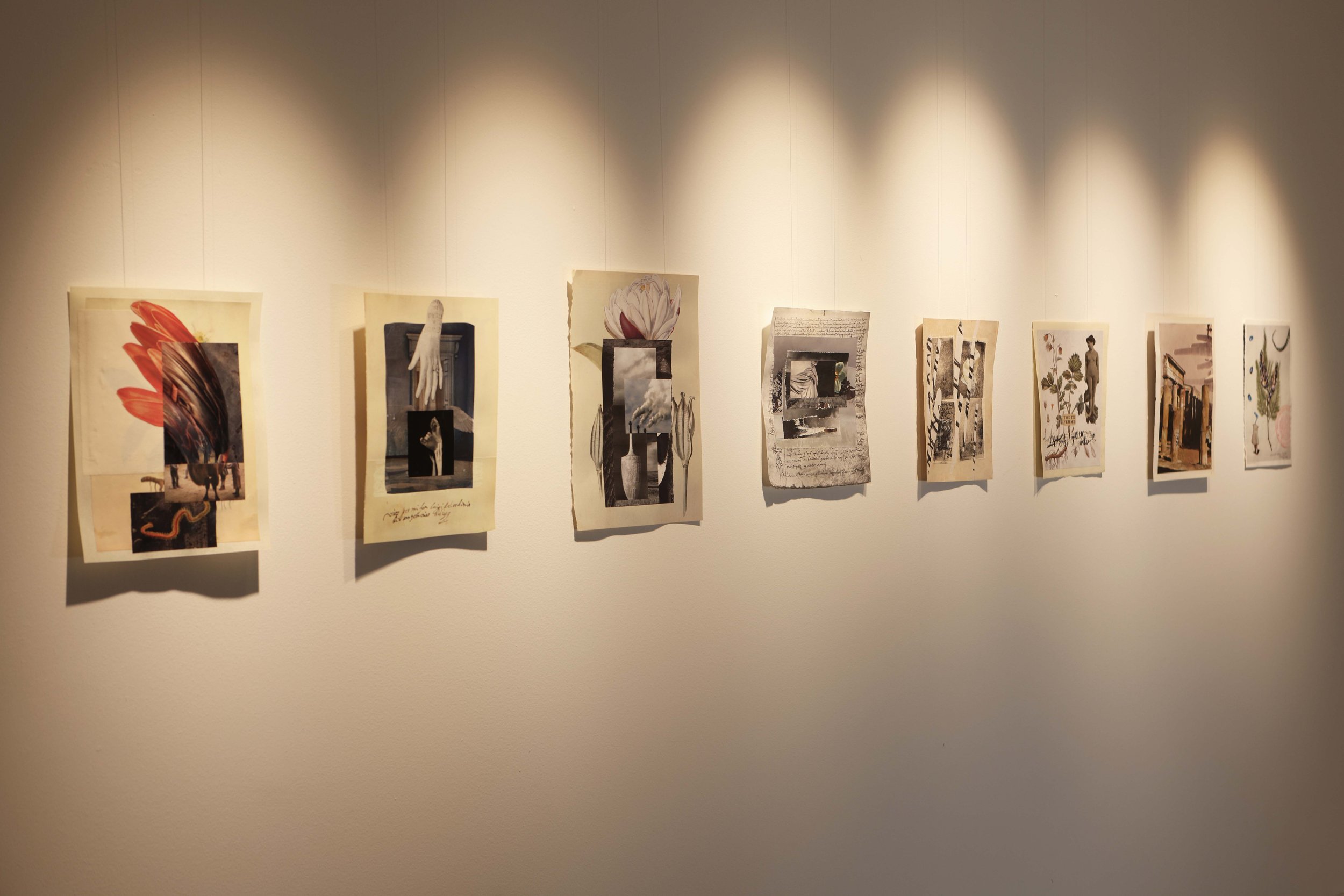
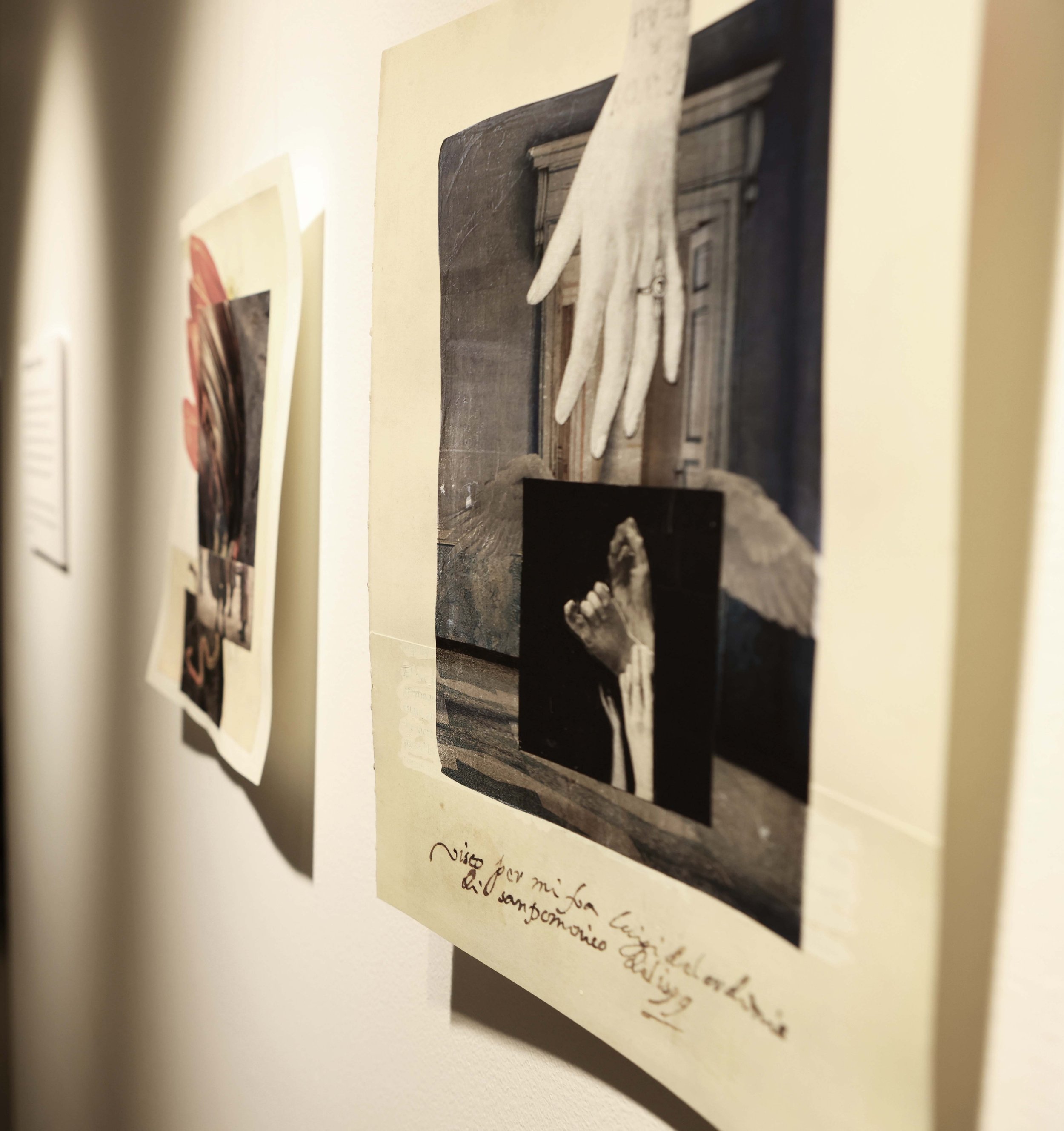
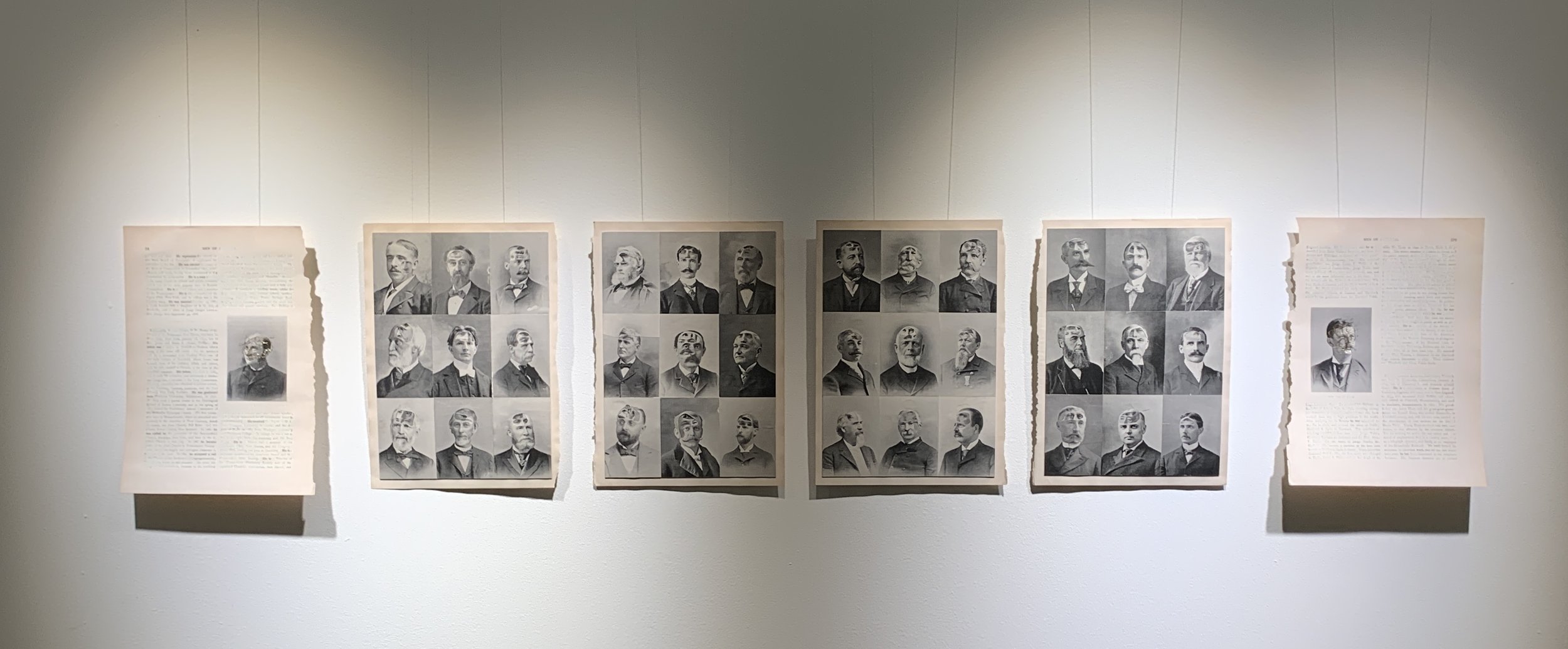
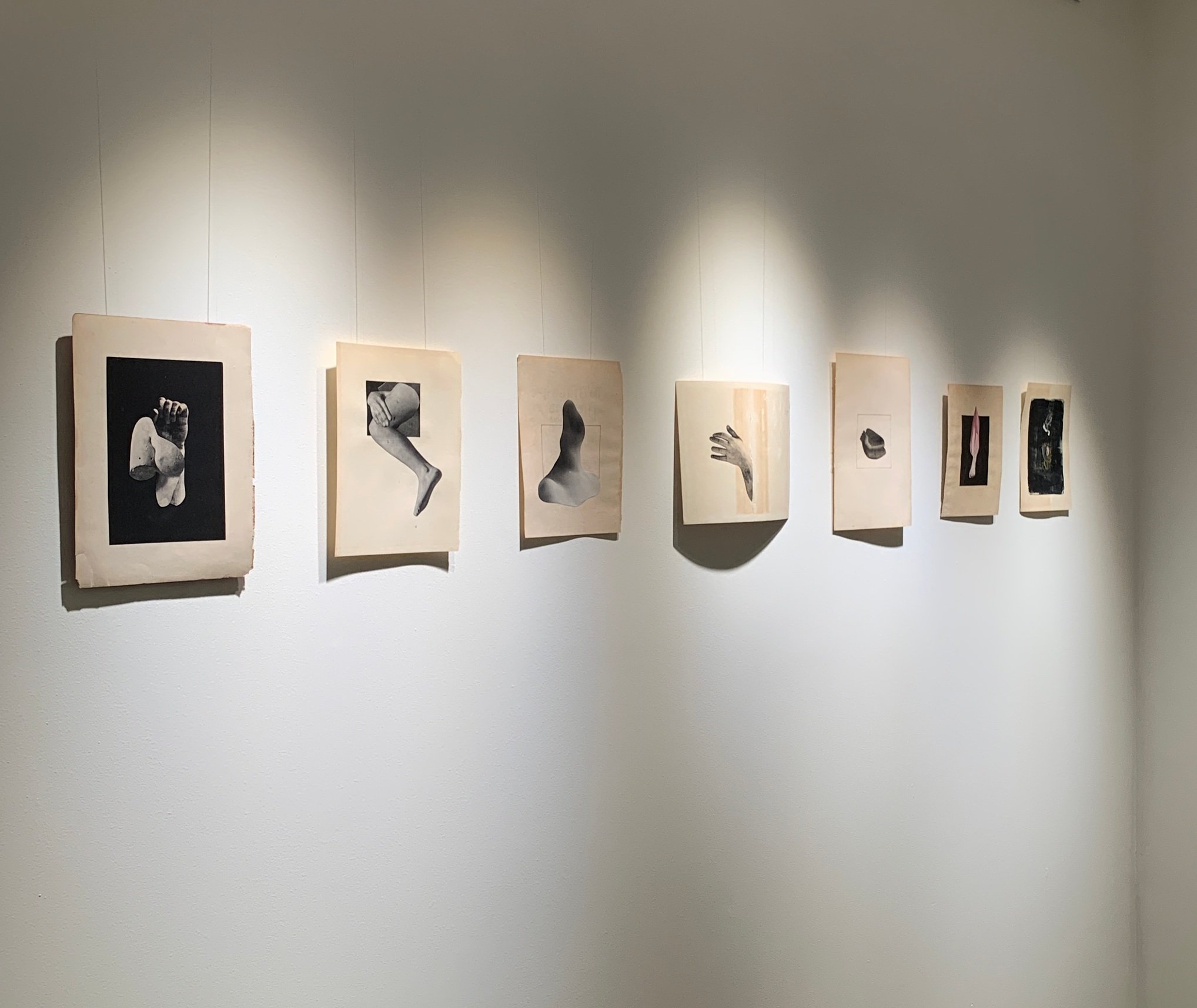
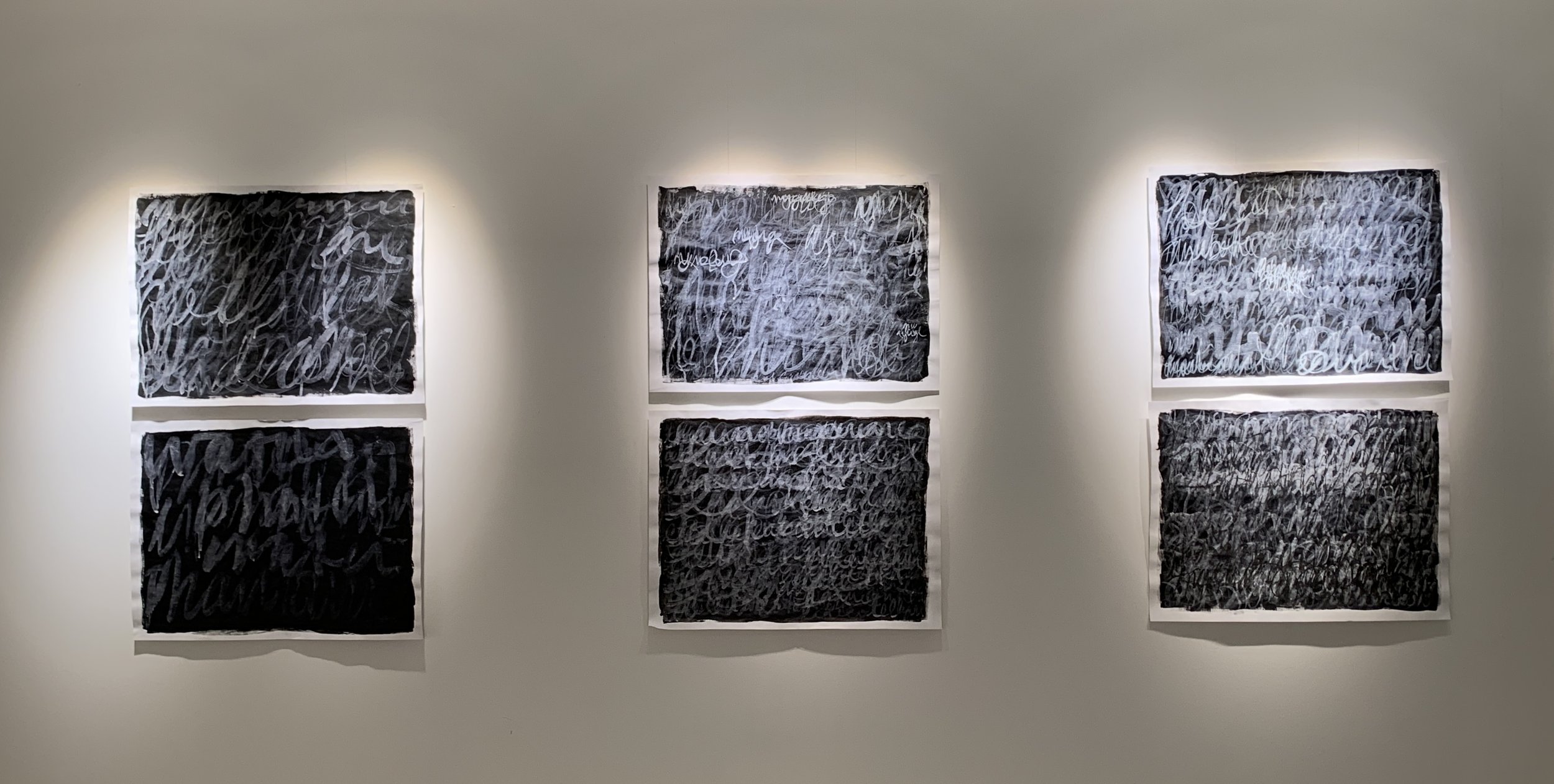
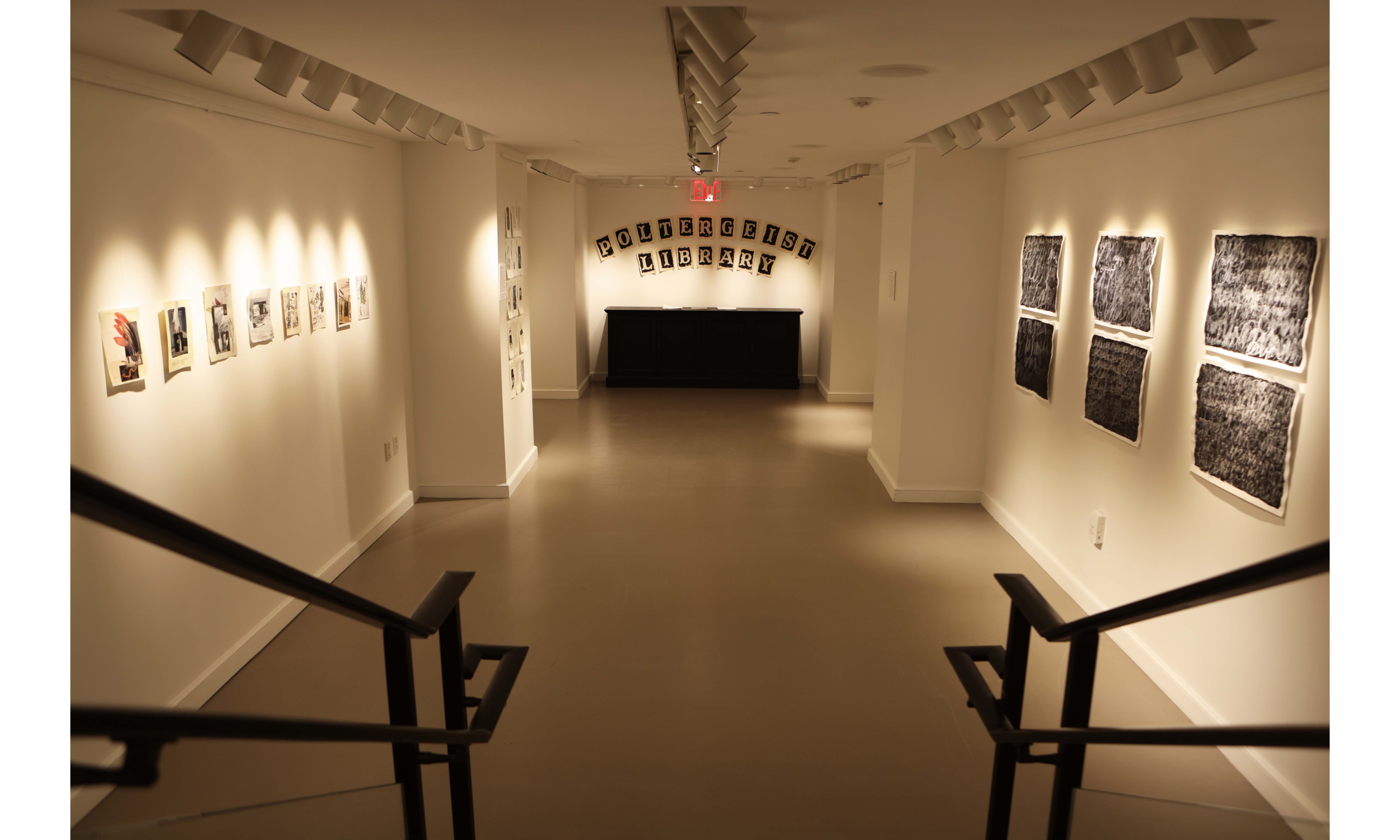
Show Statement
“…in the past people kept cloaks or cloth over their portraits. It was thought that a portrait or art object was not something that you looked upon daily, because the act of seeing, of vision, was bidirectional. So, that when you looked at something, it looked back at you, and changed you.
I think in this way that a vision has viscera. That the bidirectionality of the seeing one to the thing being seen means that all vision and imaginative space created between the two things has weight.”
Dorothea Lasky from “A Belief in Ghosts”
What is a library? For some it evokes an antique nostalgia. For others it preserves and organizes ideas, often in dusty or digital book form. The reader arrives, reads, retrieves, and departs. In this gallery, Lesley Finn summons ghosts from discarded books to construct a more subversive, dynamic library—a Poltergeist Library—alive to possibility, chance, and new vision.
Using collage and erasure—methods that rely on destruction and subconscious associations—these 2022 collections attempt to capture what it looks like when we read. The reader’s response is often invisible, internalized. But how does reading manifest in the flesh?
Reading is a conjuring. We invite the ghosts of texts to commune with our own. In the Poltergeist Library, reading is visualized, materialized in the visceral act of revision—the text haunting us and us haunting back.
Curatorial Statement
“Delicate, sparing and playfully disruptive, Lesley’s Poltergeist Library showcases the uncanny plasticity of what is written in ink and sealed by bookplates in the archive stacks. Throughout the collection, texts and images are exposed to various deconstructions revealing their essential instabilities. Carefully poised, Invisible Archive exemplifies the joy of this engagement with surreal whimsy. Where the images emerge, haunting the careful eye, as viewers we are made privy with each piece to the affair of ideas, forms and emotions which transpire behind our backs while reading.
Though the popularity of books continues to wane, content consumption swells. But in spite of its technological coming of age, the internet remains primarily a text-based, graphical medium of exchange. Through pure volume, stories are generated by the repeated impressions of faceless algorithms writing on the wall. As though we too are the ghost writer’s medium, information is processed through our consumption until plots appear. New media literacy (or lack thereof) has replaced basic literacy as the most important tool for our functional futures.
Even if you never read another book, take OR’s ghostly intimacy or the wryly subversive Men Of as a challenge to notice what the observer brings to—and what occurs in the shadows of—the text or graphic event. Which poltergeists bang the pipes below the floor while we entertain memories of old books? And who or what shakes the furniture about during visions of our daily content?”
Dustin Kuhns


